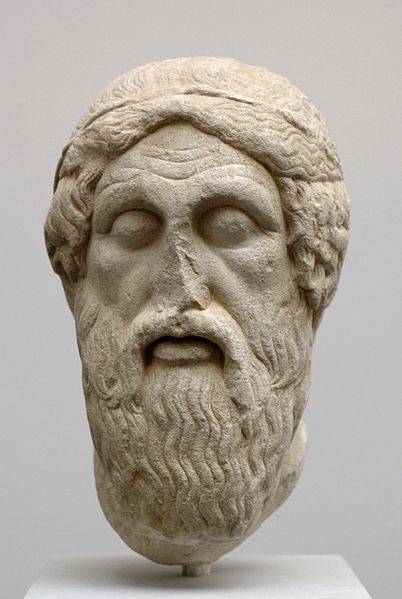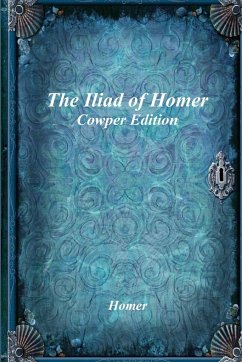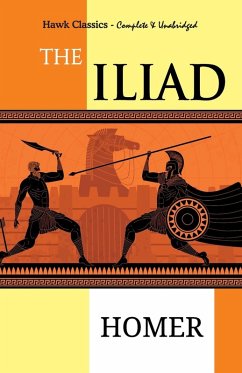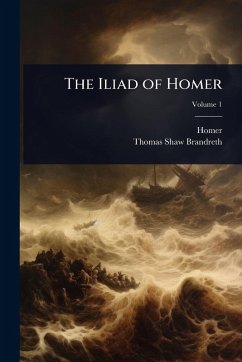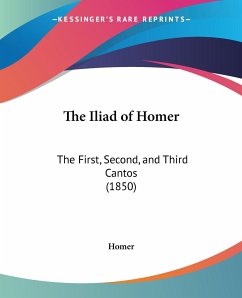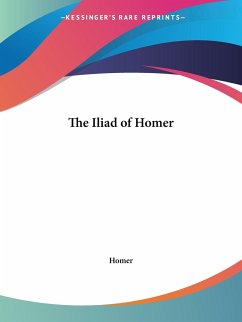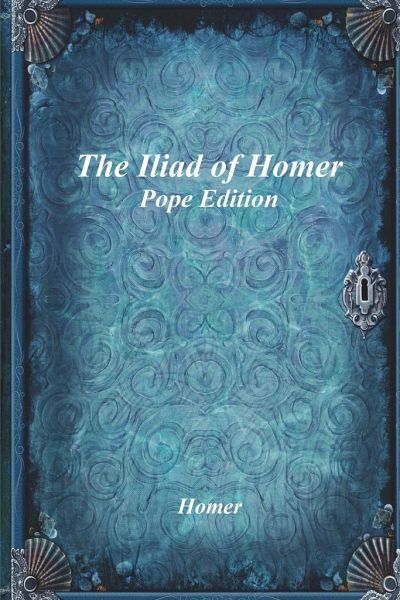
The Iliad of Homer
Pope Edition
Versandkostenfrei!
Versandfertig in 1-2 Wochen
33,99 €
inkl. MwSt.

PAYBACK Punkte
17 °P sammeln!
When Helen is taken away by the Trojans, a mighty Greek king gathers the various city states for war against the city of Troy to try and get Helen back. What the Greeks don't realize is that Helen, while being captured, has fallen in love with a Trojan prince, a hero of Troy. Achilles is a mighty Greek warrior that the Greeks have on their side and the two brilliant minds of Hector and Achilles clash as the Greek siege the city of Troy. The fight becomes personal as allies and friends are killed and one of these heroes goes so far as to insult the gods themselves in his desire for conquest. Th...
When Helen is taken away by the Trojans, a mighty Greek king gathers the various city states for war against the city of Troy to try and get Helen back. What the Greeks don't realize is that Helen, while being captured, has fallen in love with a Trojan prince, a hero of Troy. Achilles is a mighty Greek warrior that the Greeks have on their side and the two brilliant minds of Hector and Achilles clash as the Greek siege the city of Troy. The fight becomes personal as allies and friends are killed and one of these heroes goes so far as to insult the gods themselves in his desire for conquest. This epic poem tells a story of love and conquest as two ancient empires battle it out.





